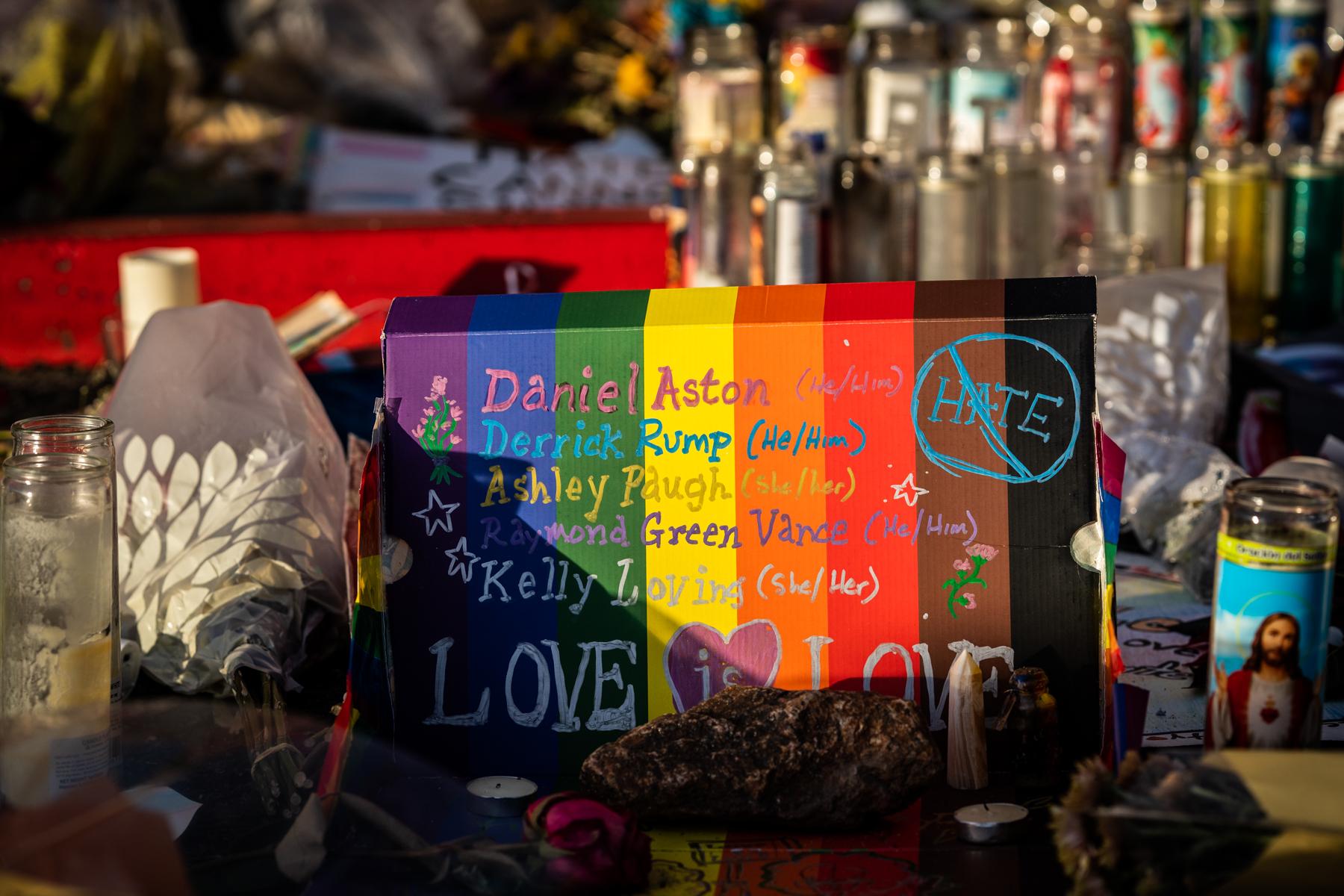
Updated 5:07 p.m., Feb. 23
After two days of evidence and witness testimony, a Colorado Springs judge ruled the suspect in the deadly shooting at Club Q will face hundreds of charges at trial, including several for committing hate crimes.
Five people were killed and at least 19 were injured in the shooting at the LGBTQ nightclub last November.
The suspect’s alleged actions were responsible for the deaths of five individuals, Raymond Green Vance, 22; Daniel Aston, 28; Ashley Paugh, 35; Derrick Rump, 38; and Kelly Loving, 40.
Anderson Lee Aldrich, 22, was originally charged with 305 counts, including assault, bias-motivated crimes, and attempted murder. Fourth Judicial District Attorney Michael Allen amended the charges against Aldrich last month adding 12 additional charges. Six more charges were also added, bringing the total charges Aldrich faces to 323.
Aldrich’s attorneys argued Thursday there wasn't any evidence that their client was motivated by bias, but McHenry ultimately sided with prosecutors, saying the evidence given was sufficient at this stage in the proceedings.
The suspect was in person in court again Thursday morning, along with dozens of survivors and families who packed into the small El Paso County courtroom.
Thursday's hearing was focused on the final legal arguments regarding the charges against Aldrich. It followed a full-day of witness testimony that included four officers from the Colorado Springs Police Department on Wednesday.
Prosecutors also gave a recap of the evidence that was presented by witnesses on Wednesday — evidence that the suspect’s mother forced her child to go to gay clubs; witness testimonies saying the suspect was obsessed with murder; pictures of a rifle scope trained on what appeared to be a gay pride parade; and evidence supporting notion that the suspect intentionally targeted Club Q.
The defense focused largely on Aldrich's mental health
“What happened here was senseless, awful and it was tragic,” defense attorney Joseph Archambault said in court Thursday. “But Aldrich’s behavior after this incident says they’re sorry, upset and emotional about what they did. … It’s categorically different than someone who targets a group, and that’s not what Aldrich did. … We have someone who was on a lot of drugs and had mental health issues.”
Aldrich will remain in custody without bond.
Adriana Vance's son Raymond was one of the victims. She said the suspect's mental health issues should be irrelevant.
“To me that has nothing to do with, at the end of the day, he still went in there and killed people and hurt a lot of people.”
Vance also mentioned how Aldrich cried during the hearing, most noticeably when detectives testified about people's injuries and also when defense attorneys talked about the suspect's home life and mental state.
“He was crying for himself,” she said. “But he's going to have a lot more crying to do, so he should save some of those tears right now.”
Next steps for the trial
At the request of the defense, McHenry scheduled an arraignment for Aldrich on May 30. He stipulated that the defense attornies work quickly to hire a psychologist for a mental health evaluation of Aldrich. If a mental health defense is being considered at trial, it has to be entered during the arraignment.
McHenry also said he wants to schedule a trial soon in the interest of both parties.
“If we move too slowly, justice can be denied,” McHenry said Thursday. “If we move too quickly, justice can be denied.”
He ultimately granted the defense’s request.
In a press conference following the hearing, Fourth Judicial District Attorney Michael Allen said a recent change in state statute helped solidify hate crime charges filed against the suspect.
The law says a bias-motivated crime can be considered even if things like the victim's race, religion or sexual orientation were only part of the reason they were targeted.
Allen said he hopes to bring the case to trial this year, but that there's a decent chance it could run into 2024.
“That's just speaking through relative terms as it relates to the lifespan of a case in the court system,” Allen said. “If we have other outside forces like a COVID pandemic that rears its head again or something like that, that could obviously have a negative impact on our ability as well.”
Another hearing has been set for March 31 to determine whether surveillance footage from Club Q on the night of the shooting will be released to the public.
Previous coverage of the Club Q suspect in court:
- Accused Club Q shooter appears in court for first day of preliminary hearings
- El Paso County judge denies another motion to push back preliminary hearing for the suspect in the Club Q shooting
- Club Q Update: Judge denies defense attorneys their request for a delay in preliminary hearing
- Judge denies motion to hold El Paso County Sheriff’s Office in contempt for Club Q media leak
- Club Q shooting: DA files a motion for additional charges against suspected shooter, including attempted murder









